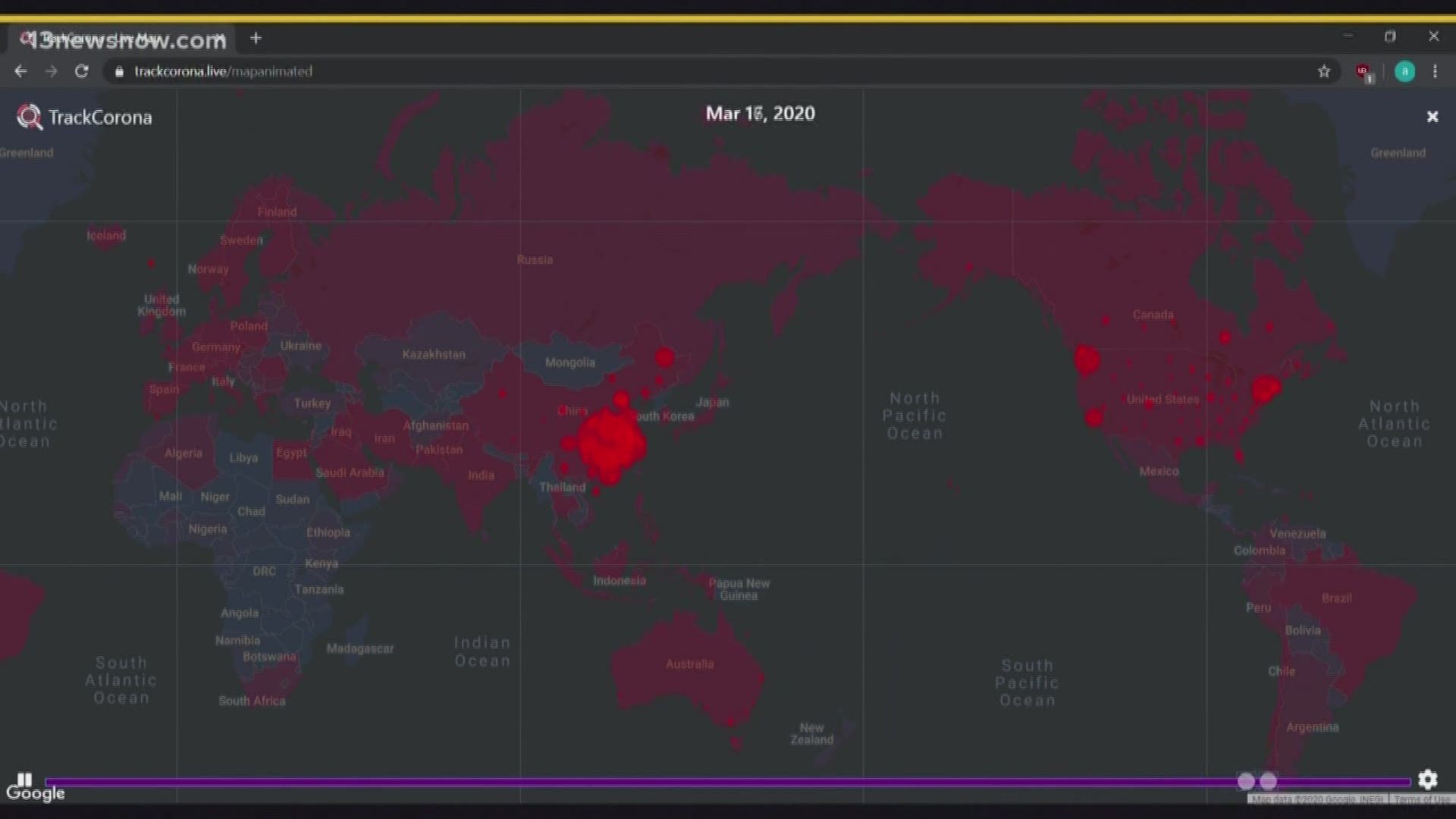CHARLOTTESVILLE, Va. — With a click of the button a map on the Track Corona website begins flashing like Christmas lights.
It shows the spread of the COVID-19 from January to mid-March in real-time.
Soukarya Ghosh and James Yun, two undergraduate students at the University of Virginia launched the website.
“Our goal is to be cautionary, so we want people to know that this is something that’s happening and it’s a threat to society, but we also want to educate people on being more aware of it and taking part in the social distancing,” said Ghosh.
Together, the software engineers launched the website as a small project to keep people in the UVA and Charlottesville community informed.
They didn’t expect it to take off the way it did. On an average day, the website gets about 3.5 million views from people across the globe. As the website began to experience more traffic, they reached out to a couple of other students to help maintain it.
Their collaborators are Bilguunzaya Battogtokh, a junior computer science major at Stanford, and Austin Stout, a junior computer science major at Virginia Tech.
“Initially our website wasn’t able to handle that kind of traffic, we had to switch our cloud providers. Because of our user growth, our costs grew exponentially,” said Yun.
“We’ve been able to reach like nearly every single country in the world. We don’t have data on North Korea, but every country other than that.”
The website uses info from the Centers for Disease Control and the World Health Organization to show the number of cases in real-time.
It also includes facts and misconceptions about the virus, a timeline of events, and a list of countries with travel restrictions. Ghosh and Yun are currently working on adding a new feature.
“We’ve been trying to get up a predictive model we’ve been working with some people at UVA, medical researchers and data science researchers, to make a model and forecast what it might be next week. That’s something we hope to get up within the coming weeks,” said Ghosh.
They may not be doctors fighting on the front line, but these undergraduate students are trying to slow the spread of COVID-19 through the power of information and the internet.
“Hopefully this will lead to people changing their life habits of practicing more self-isolation, social distancing and perhaps even save lives in the process,” said Yun.

